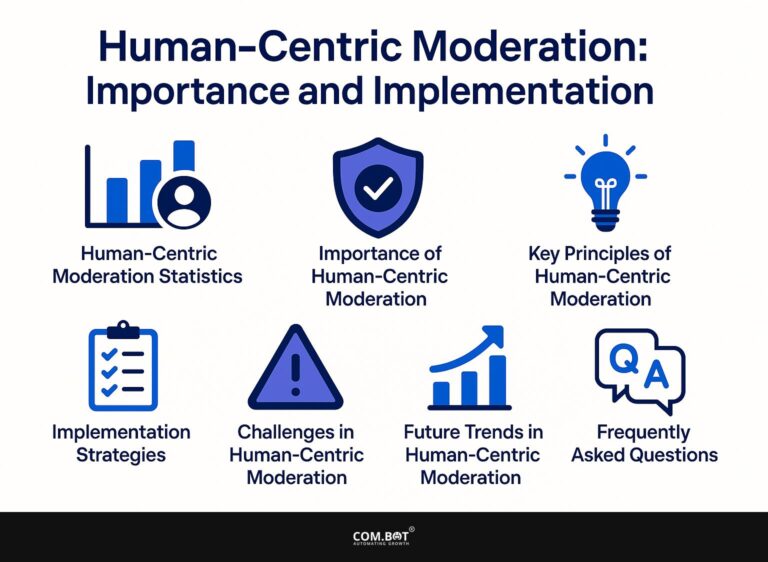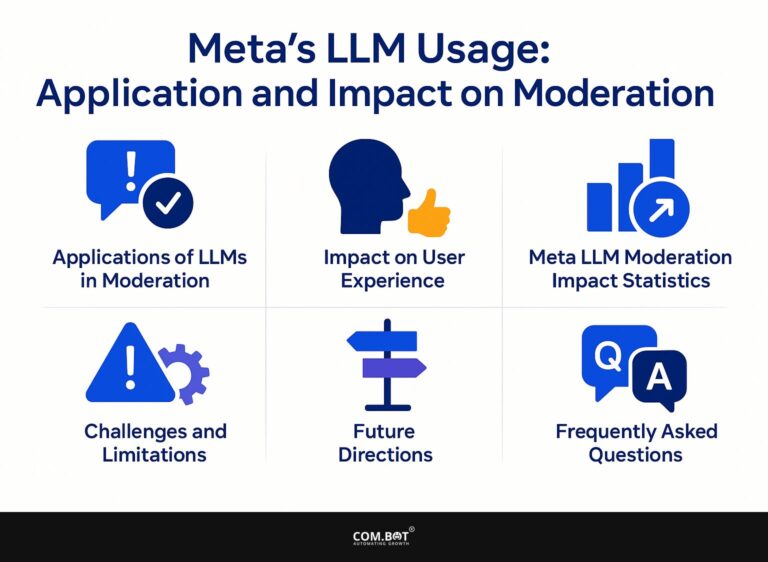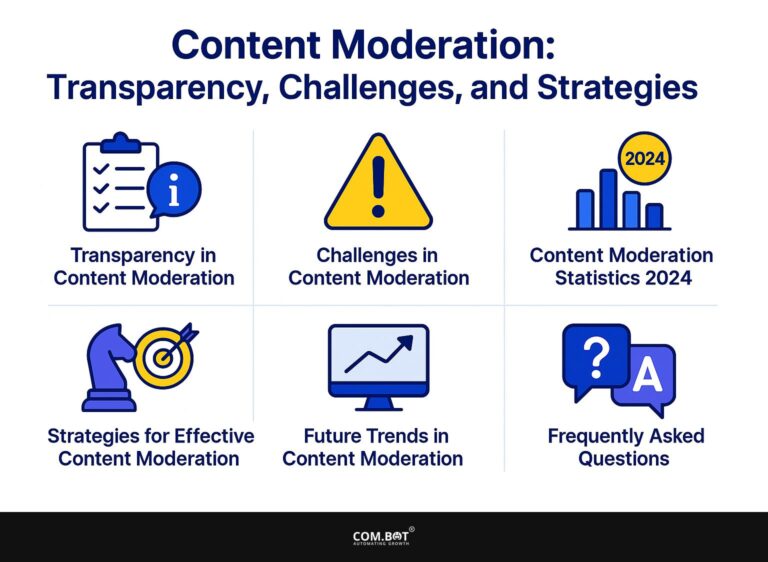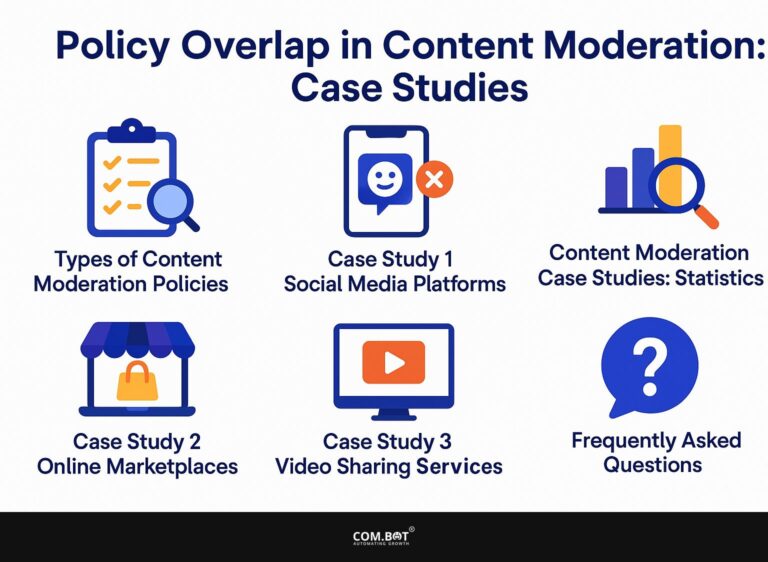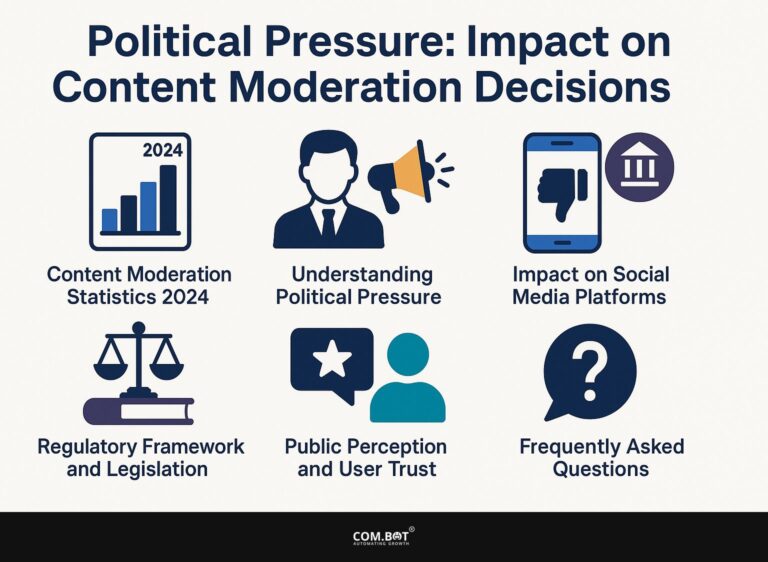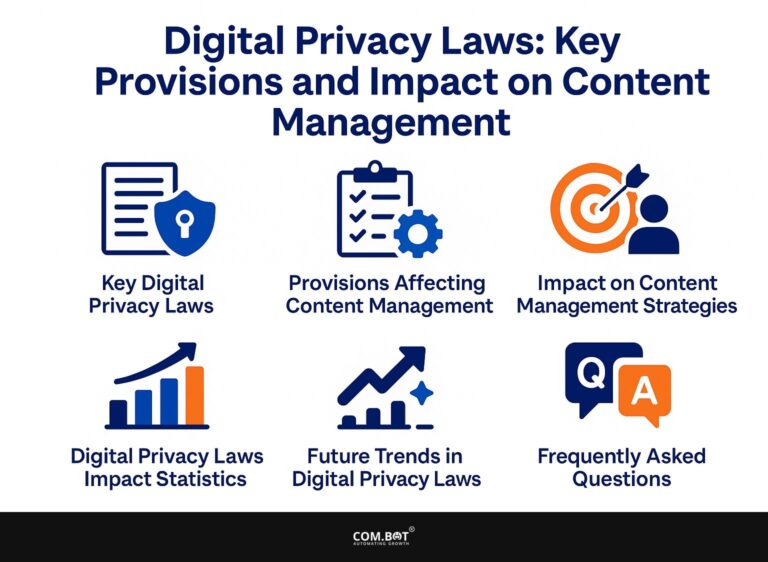Political Pressure: Impact on Content Moderation Decisions
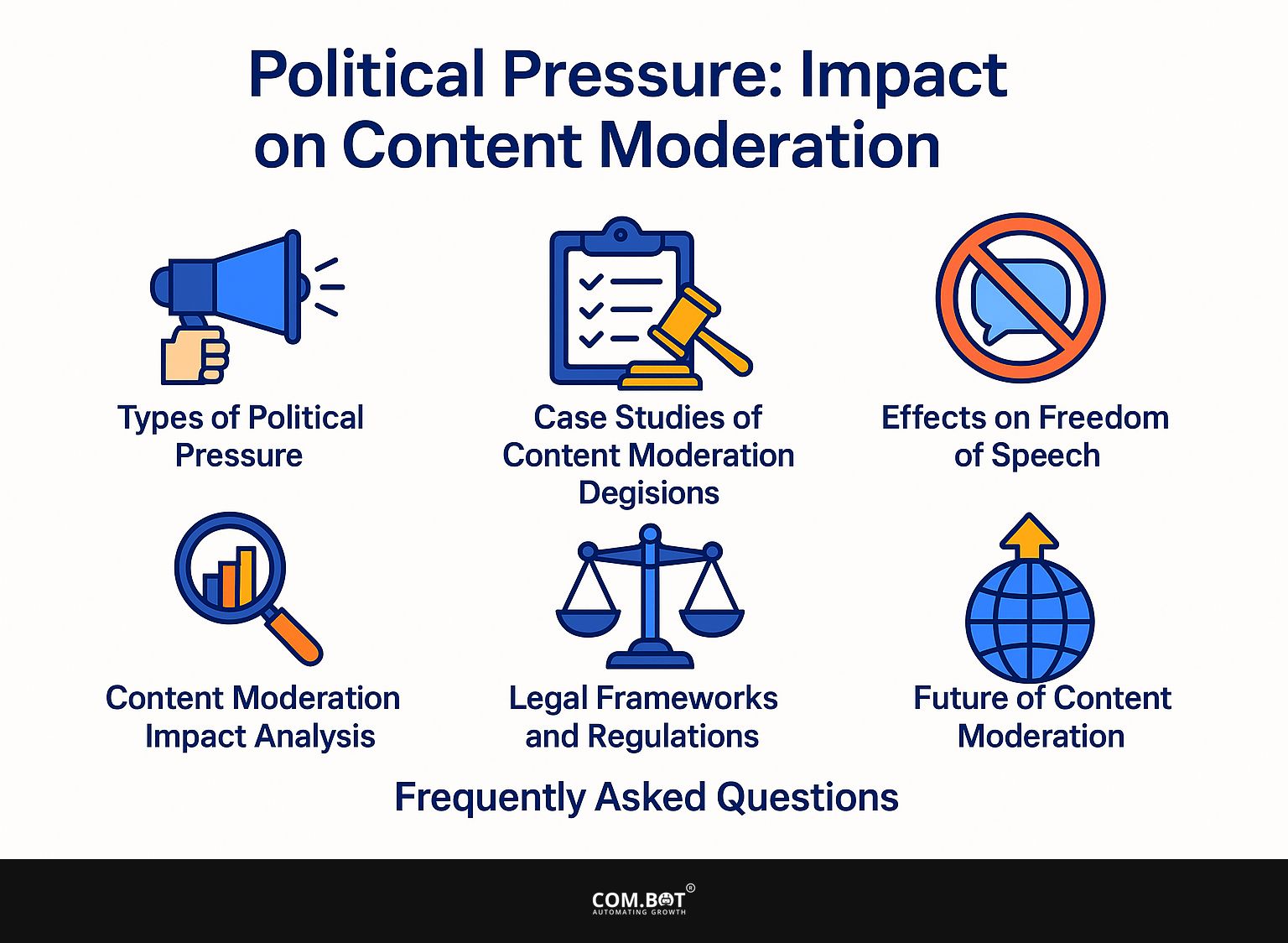
Political forces strongly impact content moderation on platforms such as Meta, affecting how misinformation is handled. The decisions made during the Trump and Biden administrations highlight tensions between free speech and community notes.
This article looks at how moderating content is managed under political pressure and shows how these actions impact user trust and online conversations. Join us as we dissect these complex challenges.
Key Takeaways:
- Political pressure can come from various sources, including government influence and public opinion, and can have a significant impact on content moderation decisions.
- Moderators need to protect free speech and also consider the effects of censorship. At the same time, they have to think about laws and rules both within the country and globally.
- Content moderation will likely face increasing political challenges in the next few years. Platforms should implement effective strategies and reliable techniques to maintain user confidence and safeguard freedom of speech.
- 1 Types of Political Pressure
- 2 Case Studies of Content Moderation Decisions
- 3 Effects on Freedom of Speech
- 4 Content Moderation Impact Analysis
- 5 Legal Frameworks and Regulations
- 6 Future of Content Moderation
- 7 Frequently Asked Questions
- 7.1 1. What is political pressure and how does it affect content moderation decisions?
- 7.2 2. What are some examples of political pressure impacting content moderation decisions?
- 7.3 3. How does political pressure impact freedom of speech and expression?
- 7.4 4. How do content moderation teams handle political pressure?
- 7.5 5. What are the potential consequences of succumbing to political pressure in content moderation decisions?
- 7.6 6. How can individuals and organizations combat political pressure on content moderation decisions?
1. Definition and Scope
Content moderation is how platforms handle content created by users to stop false information while considering the rights to free speech. Moderation approaches vary significantly in scope and implementation.
Platforms often use algorithms to find harmful content by looking at keywords and how users behave. It’s important for humans to check and make careful decisions about content that has been marked.
Following the January 6 Capitol riot, reports indicated that misinformation surged, with a staggering 70% of tweets containing false narratives about the event. This showed the need for strong moderation systems that handle false information well while considering different opinions.
2. Historical Context
The evolution of content moderation practices has been significantly influenced by political events, particularly during elections and crises.
The Digital Services Act (DSA) has become an important law in recent years, establishing rules for major online platforms on how they handle content. The DSA requires companies to be clearer about how they remove content and take more responsibility for harmful content.
Similarly, the Section 230 of the Communications Decency Act has historically shielded platforms from liability, yet its interpretation is under scrutiny. These laws have pushed platforms like Facebook and Twitter to update their moderation rules, changing how users interact and experience things online.
Types of Political Pressure
Political pressure shows up in different ways, like government influence and grassroots activism, each needing different reactions from platforms. For an extensive analysis of this dynamic, our deep dive into the impact of political pressure on content moderation decisions explores various responses adopted by platforms.
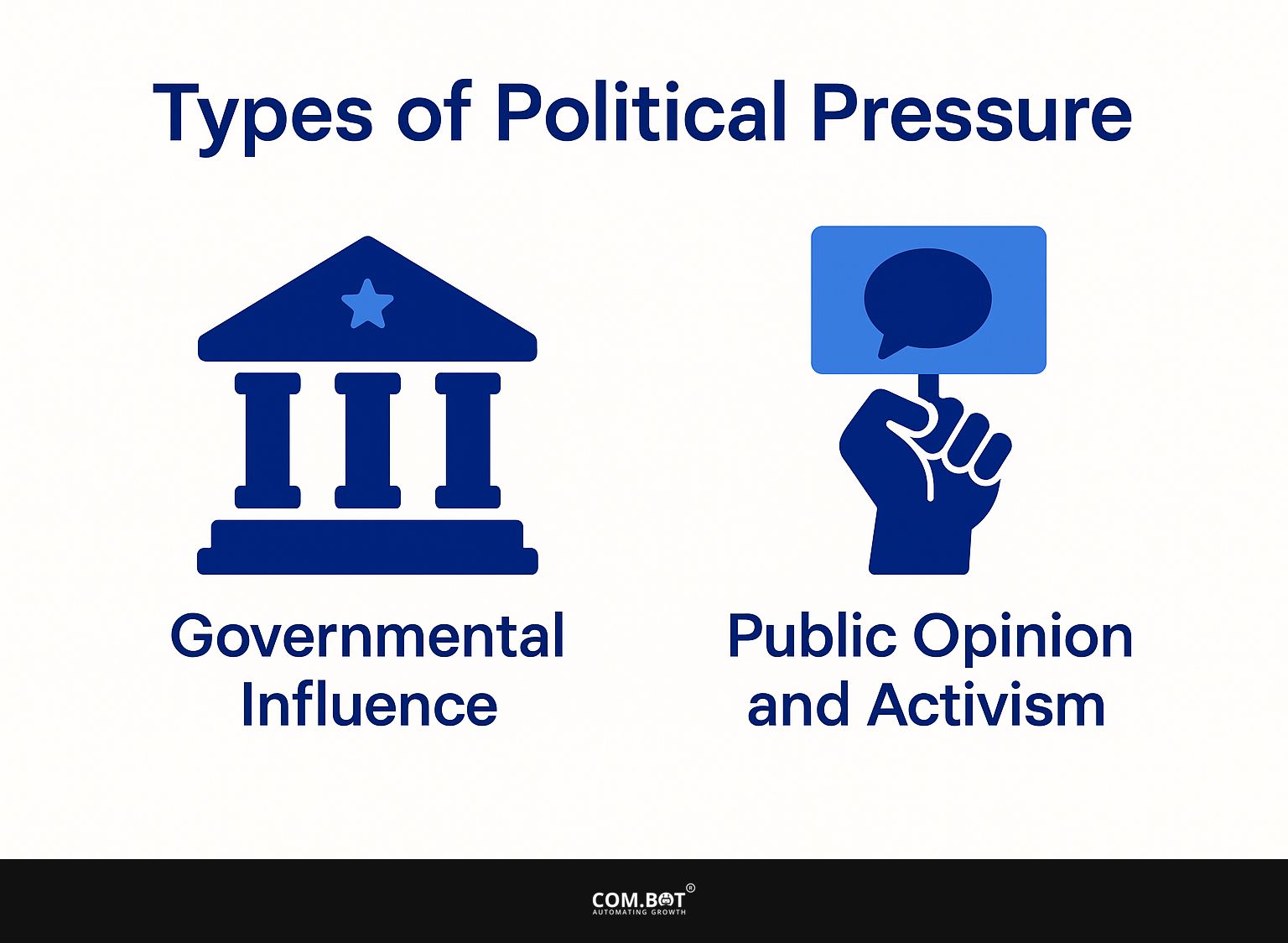
1. Governmental Influence
Governments affect how platforms manage content by setting rules that the platforms must follow according to national laws.
For instance, in the United States, the FCC has established regulations affecting how social media companies monitor and manage user content, particularly concerning hate speech and misinformation. This regulatory scrutiny has pushed platforms to adopt more stringent moderation practices.
In contrast, India has implemented the Information Technology Rules 2021, requiring platforms to appoint compliance officers and remove unlawful content within a stipulated timeframe, highlighting a proactive approach.
Meanwhile, Thailand’s Computer Crime Act imposes penalties for non-compliance with content removal requests, emphasizing the tightrope between free speech and government oversight in digital spaces.
2. Public Opinion and Activism
Activism and shifting public opinion can pressure platforms to adjust their content moderation policies in real-time based on societal demands.
For example, during the 2020 protests, advertisers pulled their money because they were worried about how platforms handled hate speech. This led companies like Facebook and Twitter to work much harder on their moderation policies.
Surveys indicated a 30% increase in users demanding stricter content control, influencing these platforms to announce new guidelines.
Some notable changes included implementing clear labeling for misinformation and expanding their monitoring teams. This responsive action highlights how public pressures and advertiser expectations can lead to tangible policy shifts, reflecting the power of collective activism.
Case Studies of Content Moderation Decisions
Well-known incidents show how difficult content moderation can be when there is political pressure, highlighting the careful decisions platforms must make. To understand the wider impact, explore our comprehensive analysis of how political pressure influences content moderation decisions.
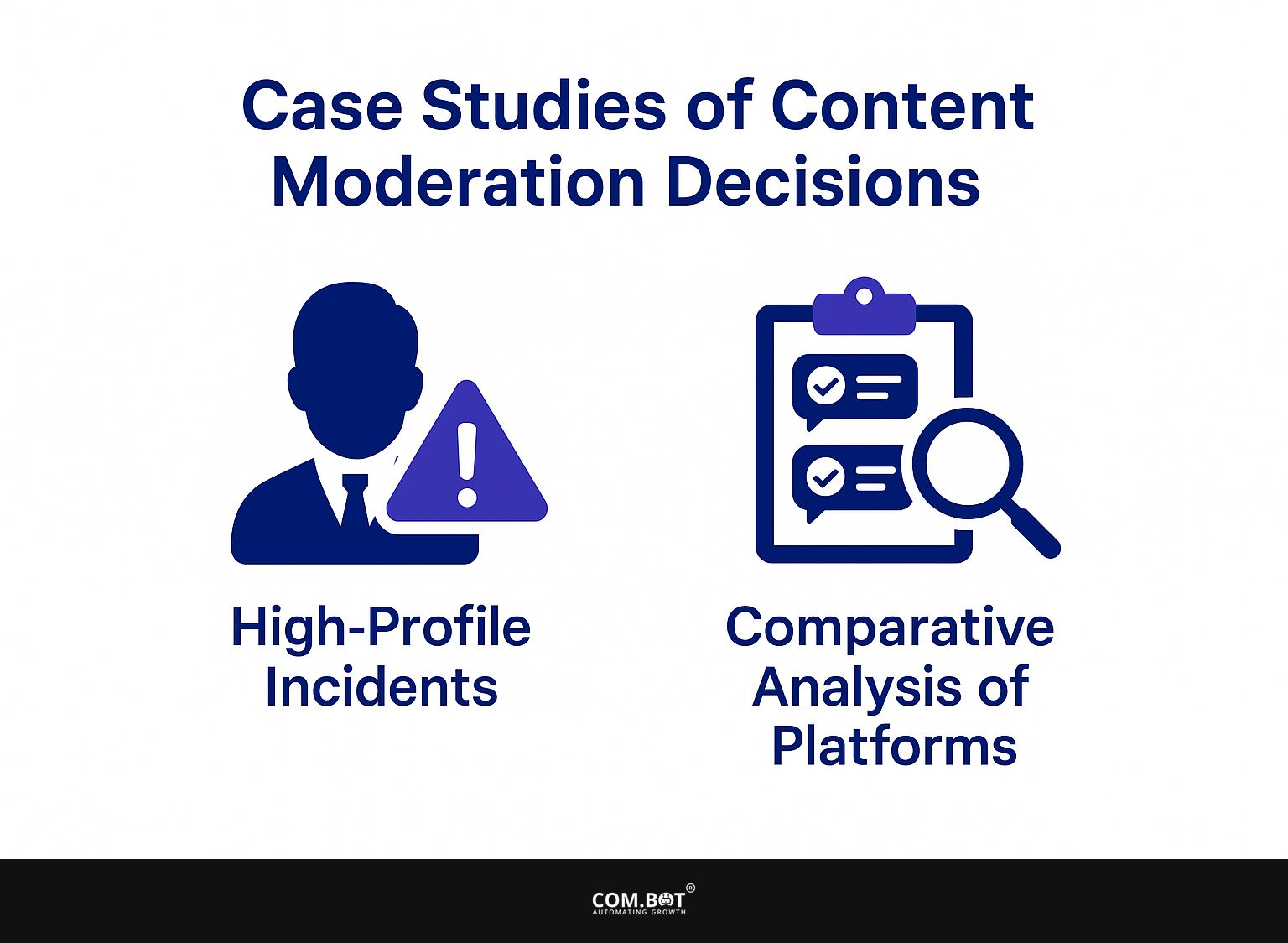
1. High-Profile Incidents
Incidents involving figures like Trump and Biden have highlighted the contentious nature of political content moderation decisions made by platforms.
The banning of Trump’s accounts in 2021 sparked intense debate about free speech versus platform responsibility. Critics argued that this action limited open discourse, while supporters highlighted the need to curb misinformation.
Engagement metrics revealed a spike in public discourse on the topic, with over 50% of users in a Pew Research survey expressing concern about platform bias. Biden’s posts have been examined for misleading information, leading platforms to set stricter rules.
These incidents illustrate the balancing act required in moderating political content, impacting both the platforms and public trust.
2. Comparative Analysis of Platforms
A comparative analysis of platforms reveals varied approaches to content moderation, shaped by differing political pressures and user expectations. Facebook employs a more centralized moderation system, utilizing a designated oversight board, which reviews contentious content.
For instance, in 2021, they reinstated a post that had been flagged for misinformation after a thorough evaluation. In contrast, Twitter emphasizes user-driven reporting, allowing users to flag tweets. This was evident when they suspended Donald Trump’s account for inciting violence, illustrating their reactive strategy.
These differing methodologies reflect how each platform prioritizes community engagement versus authoritative oversight, influencing their overall effectiveness in managing political discourse.
Effects on Freedom of Speech
The relationship between political influence and content moderation brings up important issues about free speech and censorship on online platforms. The complexities involved in how political pressure can sway moderation decisions play a critical role in shaping these debates.
Content Moderation Impact Analysis
Related insight: The article on Political Pressure: Impact on Content Moderation Decisions offers a deeper understanding of how these external influences affect moderation practices.
Content Moderation Impact Analysis
Content Moderation Metrics: Platform and Moderator Impact
The Content Moderation Impact Analysis offers a look at the amount of content posted every day on various platforms and the important part content moderation plays in affecting what users like and keeping the platform honest. This analysis is important for knowing both the problems and the expectations that social media platforms face today.
Content Moderation Metrics highlight the vast amount of content that platforms need to manage. For instance, 500 million tweets are shared daily on Twitter, demonstrating the platform’s ongoing demand for real-time content sharing and discussion. Meanwhile, 95 million photos are uploaded to Instagram daily, reflecting the platform’s visual-centric approach and the popularity of image-sharing among users.
- User Preferences: A significant 78% of users prefer platforms that actively tackle harmful content. This preference indicates that users value safety and content quality, looking to avoid exposure to misinformation, harassment, or inappropriate material. Content moderation is important for following rules and is key to keeping users’ trust and involvement.
- Moderation Workforce: Facebook and Instagram employ a workforce of 15,000 moderators. This substantial number reflects the commitment required to monitor, review, and manage the vast quantities of content these platforms handle daily. This group is essential in applying community rules and making sure content is suitable and secure for everyone.
The data illustrates the tension between the scale of content creation and the resources needed to moderate effectively. With users increasingly favoring platforms that enforce strict content guidelines, the role of moderators becomes paramount. Investing in both human and AI-driven moderation tools is essential for platforms to keep pace with content volumes and maintain user satisfaction.
Overall, the Content Moderation Impact Analysis highlights the need for a strong plan to manage content effectively. As social media platforms grow, it’s important to oversee user content and moderate it properly to maintain success and keep users interested.
1. Balancing Act: Censorship vs. Protection
Platforms are often caught in a balancing act between censoring harmful content and protecting free speech, leading to controversial decisions. This dilemma is exemplified by Facebook’s removal of misinformation during the COVID-19 pandemic, which aimed to protect public health but sparked debates about censorship.
Similarly, Twitter faced backlash after suspending accounts that questioned vaccine efficacy. Such actions can alienate users who view these removals as infringements on free speech.
On the other hand, platforms like Reddit employ community-driven moderation, allowing users to vote on content. This method encourages participation, but it can sometimes cause uneven application and create spaces where only similar views are shared, threatening the essence of open conversation.
2. Implications for User Trust
Content moderation decisions influenced by political pressure can significantly impact user trust in digital platforms. Studies indicate that platforms with clear moderation rules lead to more trust from users.
For instance, a study by the Pew Research Center found that 75% of users are more likely to trust platforms that disclose moderation criteria. Using community feedback can build more trust.
Platforms like Reddit use voting by users to help manage content, which often leads to more active participation from users. By focusing on openness and getting the community involved, platforms can reduce the negative impacts of political influence and create a more reliable atmosphere.
Legal Frameworks and Regulations
Knowing the legal rules for content moderation is important for dealing with political demands and following regulations. This is particularly crucial when navigating the complex landscape of decision-making under pressure, as outlined in our discussion on political pressure and its impact on content moderation decisions.
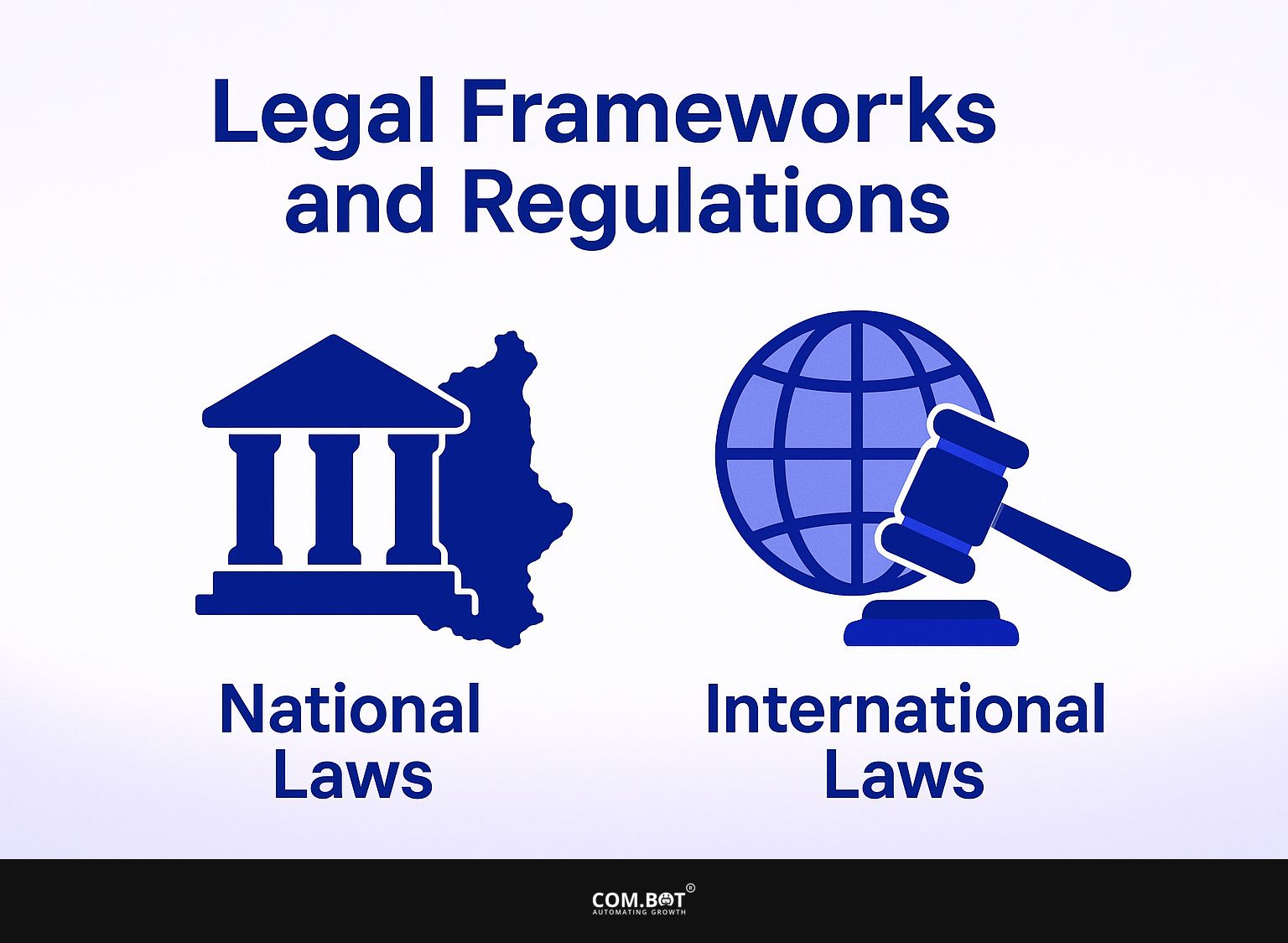
National vs. International Laws
Differences between national laws and international rules make it difficult for platforms to work worldwide. For example, the EU’s General Data Protection Regulation (GDPR) imposes strict data privacy requirements, while the U.S. enforces a more fragmented approach through sector-specific laws.
Companies like Facebook must handle different regulations in various countries. They need to put in place thorough compliance plans, such as:
- Employing data protection officers
- Conducting regular audits
- Changing privacy policies to follow local laws
Not following the rules can lead to big fines or restrictions, making it difficult for them to operate easily in various markets.
Future of Content Moderation
As political pressures change, content moderation practices must also change, requiring platforms to update their strategies. For a deeper understanding, learn more about the significant impact of political pressure on content moderation decisions.
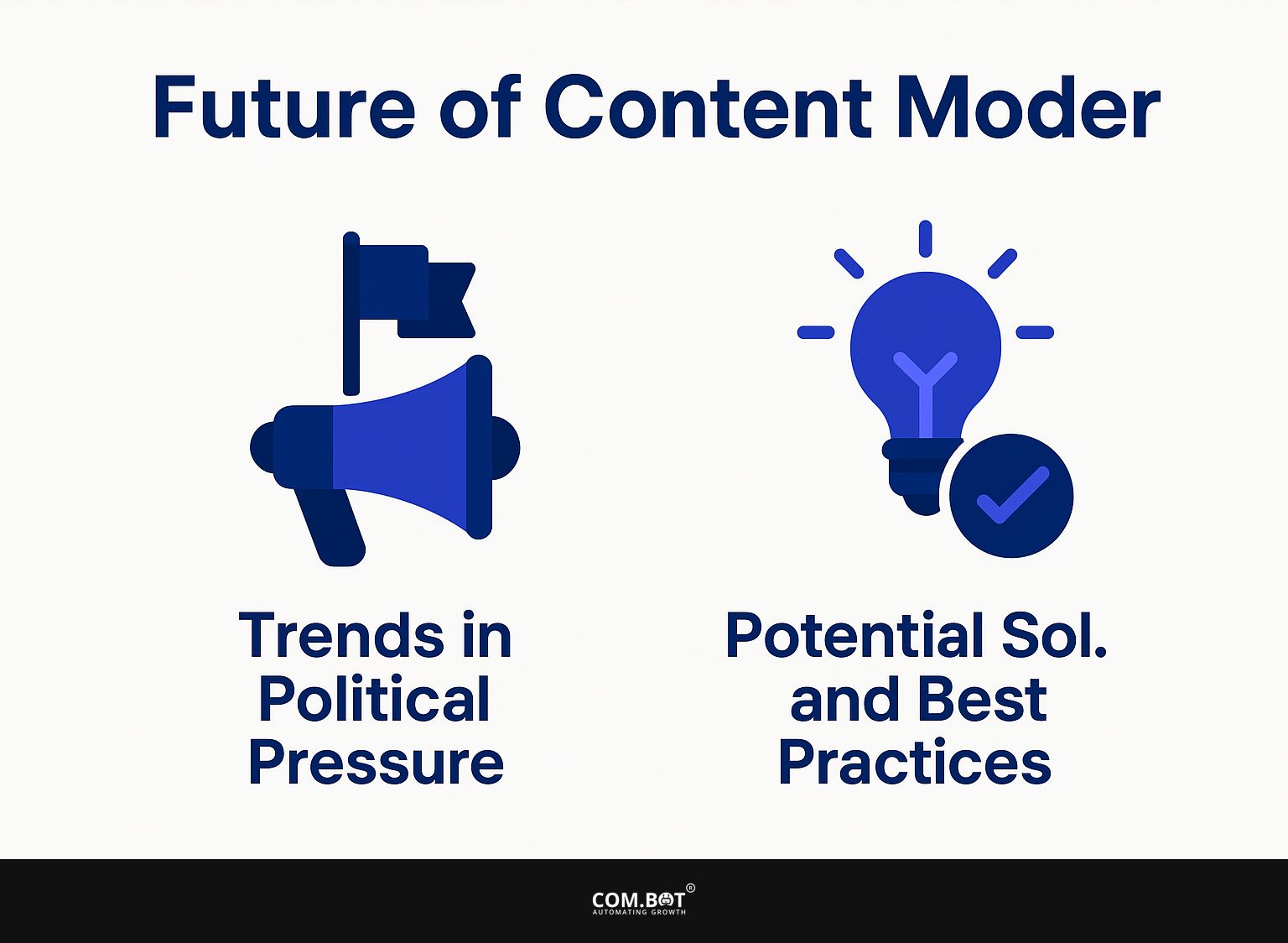
1. Trends in Political Pressure
Emerging trends indicate that political pressure on content moderation will intensify, particularly in polarized political climates.
There are many reasons for this trend. More political division means social media platforms are closely watched by people with different political views, often causing claims of unfairness.
Regulatory demands are growing; for example, the EU’s Digital Services Act could impose significant penalties for failing to moderate harmful content effectively. Metrics suggest that by 2025, nearly 60% of platforms may adopt stricter moderation policies, which could reshape user engagement and content dissemination strategies dramatically.
2. Potential Solutions and Best Practices
Platforms can use effective methods to reduce political influence, increase openness, and keep user confidence in moderation processes. One effective approach is to establish clearer community guidelines that outline acceptable behavior and content.
For example, platforms like Facebook have published detailed instructions on how they manage content moderation. Implementing regular transparency reports, similar to those by Twitter, helps users understand policy enforcement and moderation statistics.
Using tools like surveys or suggestion boxes helps platforms change and address user concerns. These strategies help create trust and can increase community satisfaction by encouraging open communication.
Frequently Asked Questions
1. What is political pressure and how does it affect content moderation decisions?
Political pressure is the effect that politicians and political groups can have on the choices made by content moderation teams. This can include requests, demands, or even threats to remove or alter certain content that may be deemed unfavorable or controversial by those in power.
2. What are some examples of political pressure impacting content moderation decisions?
One example of political pressure affecting content moderation decisions is when a government or political party pressures social media platforms to remove content that criticizes their policies or actions. Another example is when advertisers or influential figures threaten to boycott a platform if certain content is not removed.
3. How does political pressure impact freedom of speech and expression?
Political pressure on content moderation decisions can limit freedom of speech and expression by censoring dissenting voices or alternative viewpoints. This can create an environment where only certain ideas and opinions are allowed, suppressing diversity and open discussion.
4. How do content moderation teams handle political pressure?
Content moderation teams usually have rules and guidelines to manage political pressure, making sure decisions match community rules and local laws. They might talk with legal teams to check the legality and possible effects of the pressure before deciding.
5. What are the potential consequences of succumbing to political pressure in content moderation decisions?
Giving in to political pressure when making content moderation decisions can harm the platform’s credibility and trustworthiness. It can also reduce the variety of content and viewpoints available. It might create a standard for upcoming pressure and control, eventually causing a limited and one-sided online area.
6. How can individuals and organizations combat political pressure on content moderation decisions?
People and groups can fight against political influence on content moderation choices by pushing for openness and responsibility in how decisions are made. They can also support platforms that prioritize free speech and the protection of diverse viewpoints, and hold political figures and organizations accountable for attempts to censor content.
